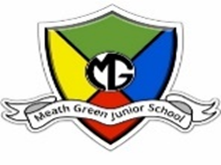Phonics and Early Reading

Phonics provision: Who and How?
Essential Letters and Sounds (ELS):
ELS is used as a targeted intervention in Year 3 for those children who have come up to us significantly below expected standard in Phonics. This means children who have not passed the Year 1 phonics screener and are yet to complete all phases. This is generally a small number of children (up to max. 5% of our intake) and they will have daily 20 minute sessions working on sounds and books that are appropriate to their level. ELS has been chosen as it bridges the gap between infant and junior phonics provision and it is the SSP used by our main feeder school, Meath Green Infants (MGI). It will ensure a smooth transition for those children who are progressing more slowly with phonics than we would expect them to be. All staff have had training on ELS and are aware of the structure of lessons at MGI, which ensures immediate and smooth transition to Junior school for those children needing to remain on the programme.
All other children will have completed phases on the ELS scheme and therefore have some knowledge of all expected sounds. There will be some, however, who have gaps in their knowledge and may require a specific phonic intervention at a higher level in order to boost their decoding, reading and spelling skills. For this reason, we have Fresh Start. Fresh Start is a phonics intervention (DfE validated SSP) that can be accessed at any level for children with gaps in their phonic knowledge. There are 33 modules with clear structure and regular assessment points. It is specifically aimed at junior aged children. We have 4 specialist Teaching Assistants fully trained to be able to deliver Fresh Start interventions in any year group.
Which children will partake of Fresh Start sessions?
We have a thorough assessment process for reading, including the Neale Analysis of Reading Ability (NARA) for all children in Autumn 1. This gives a comprehensive picture of each child’s reading age, comprehension level and reading rate. From this, children working below expected standard can be identified and further exploration as to reasons behind their levels can occur. This may include a Fresh Start assessment if staff working with the child believe phonics gaps to be a significant issue (the child may struggle to sound words out or hear sounds within words, for example). Fresh Start Assessments flag up gaps and modules that the child may need to repeat in order to progress further with reading. Fresh Start is very much an intervention used alongside the everyday, timetabled VIPERS and Literacy sessions.
How do book bands fit in with Phonics provision?
We use all of our assessments and data to ensure children are reading books that are appropriately matched to their reading ability – stage and age appropriate. Children on ELS have fully decodable books with words that contain only the sounds that they have worked on within sessions. Children working on Fresh Start have a coloured book band which matches their ability (based on Neale analysis and ORT book band colours). They have previously completed phonics phases and so have been exposed to all sounds. Their identified ‘gaps’ are filled within Fresh Start sessions and Fresh Start texts are also available to them too. Every child in the school is aware of their book band colour and knows where to look in class libraries and on the library bus in order to choose reading material that is appropriate and enjoyable for them.
